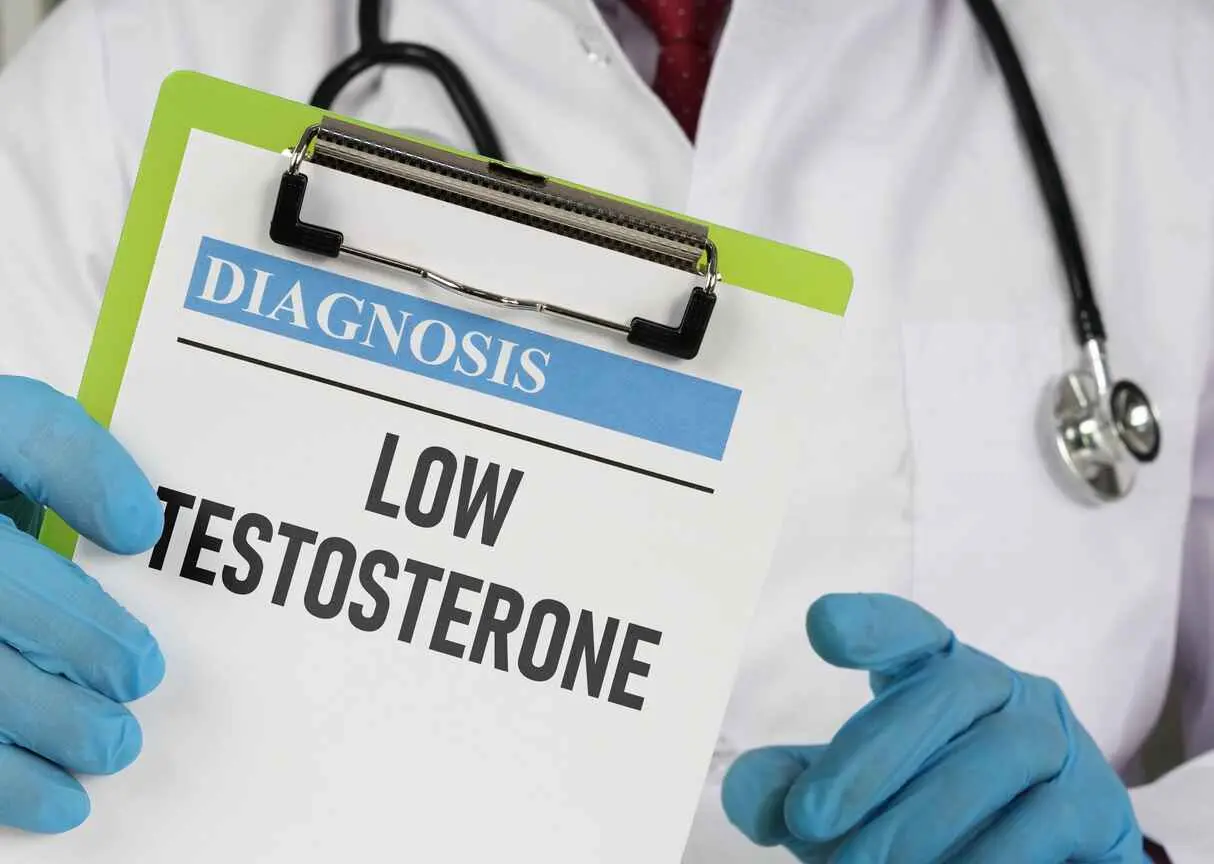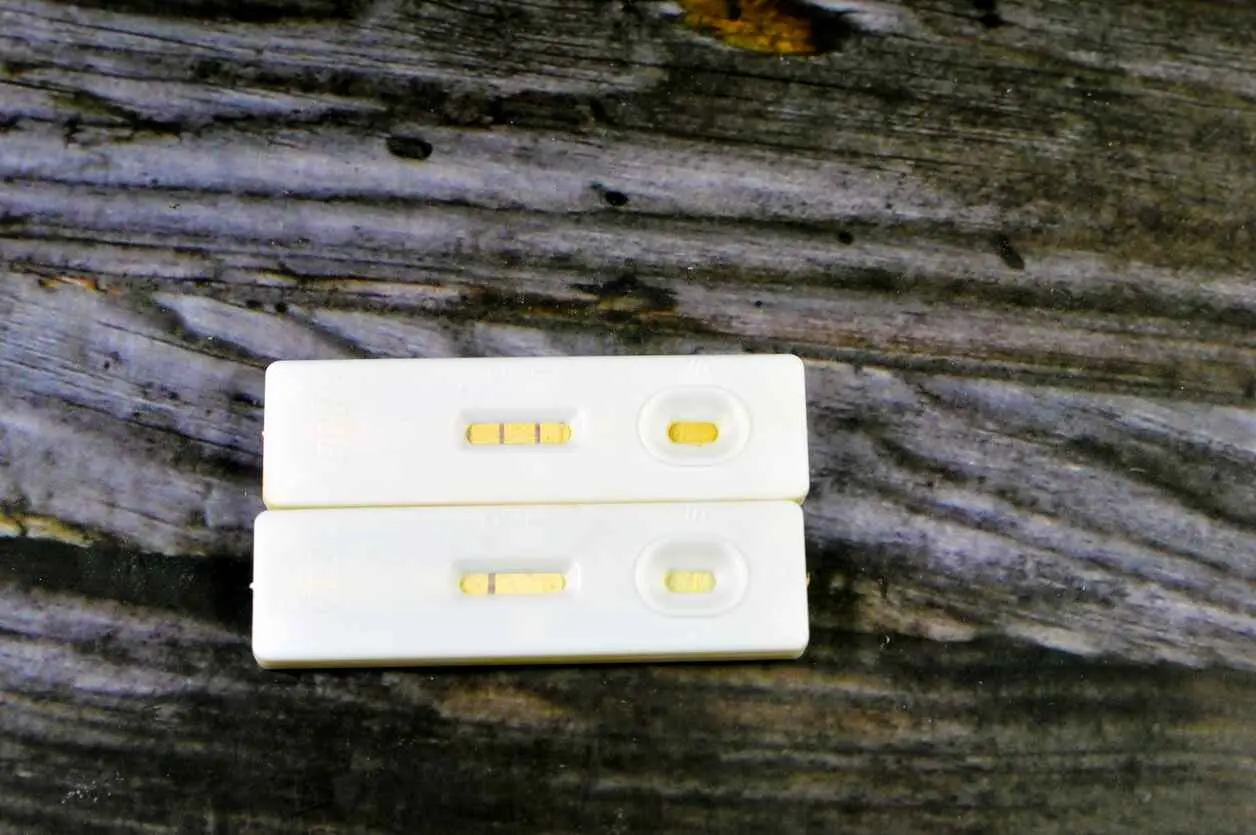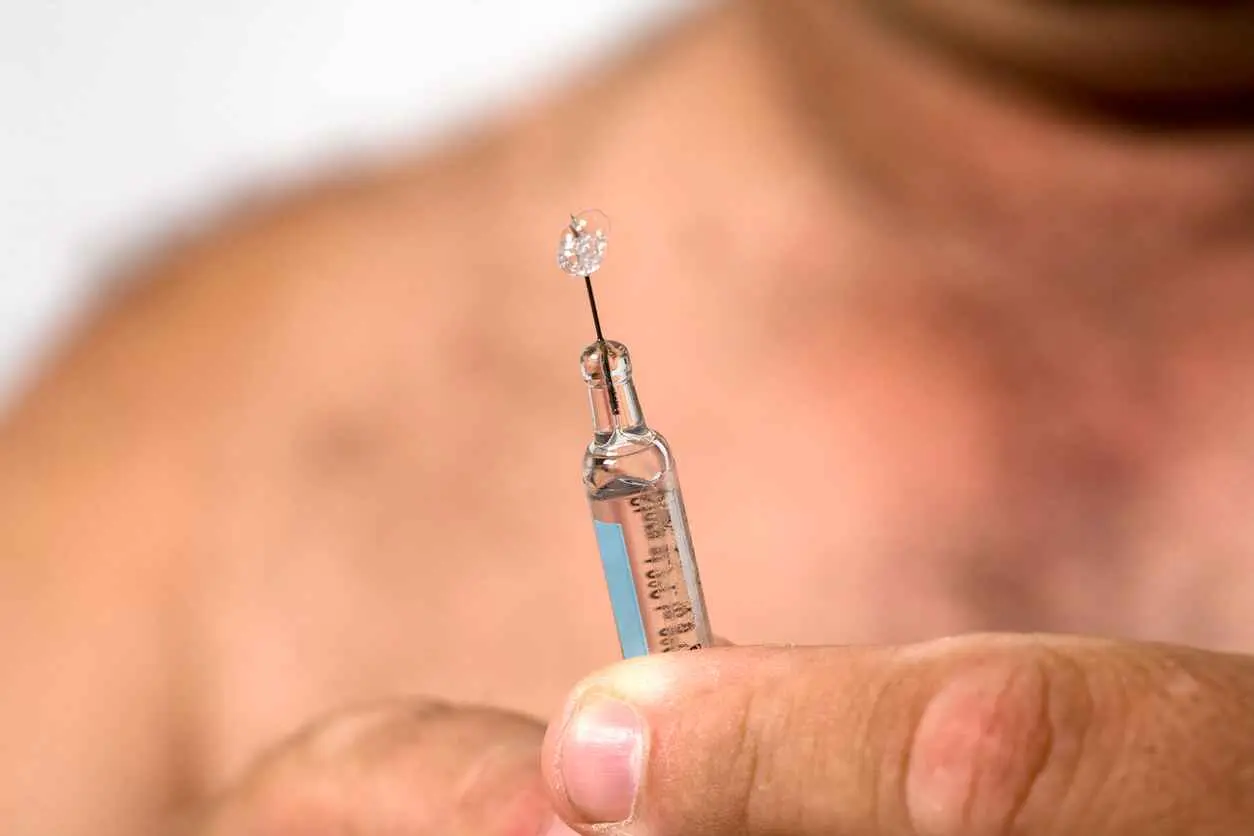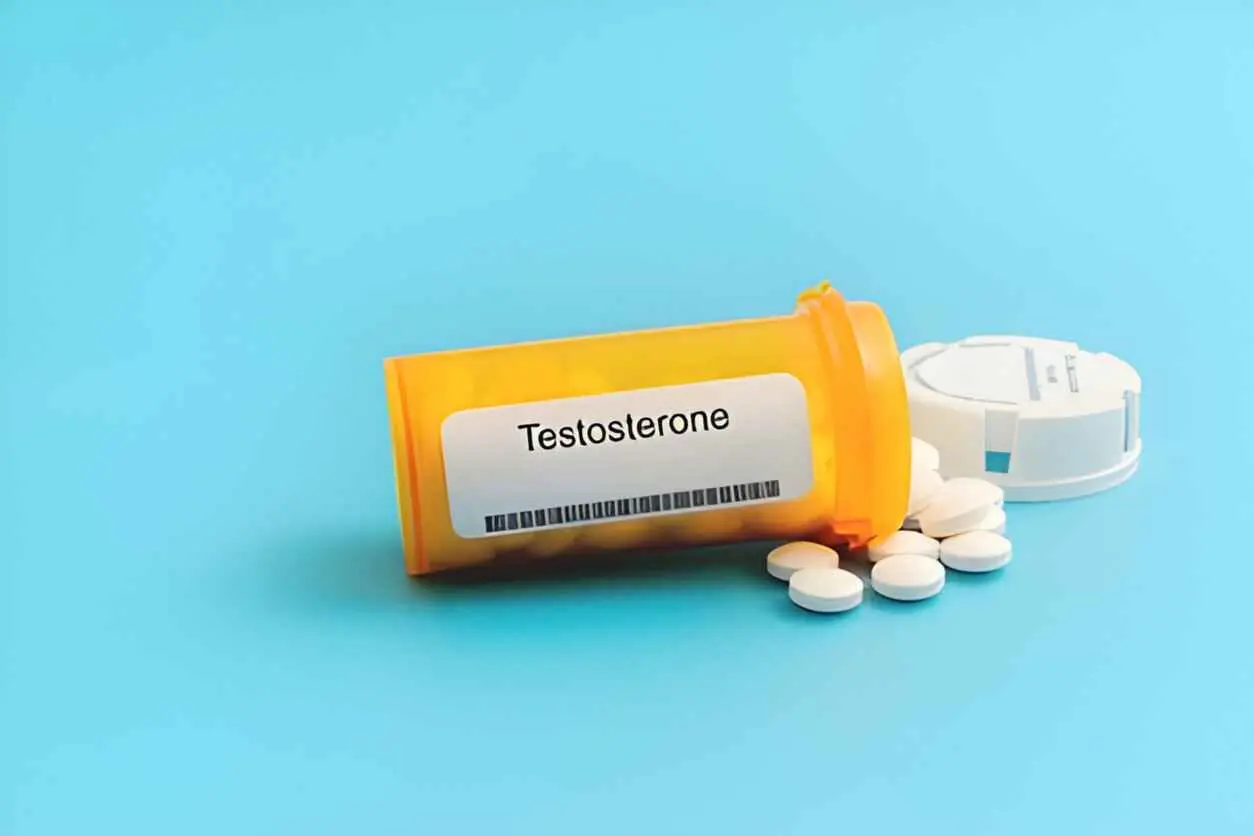
Can Low Testosterone Lead To Infertility?
Can Low Testosterone Lead To Infertility?
Can low testosterone cause infertility? The short answer is yes, it can. Testosterone is the primary male sex hormone, and it plays a significant role in making sperm. If testosterone levels drop too low, the body may struggle to produce enough healthy sperm, which can make it harder for a man to have children (National Library of Medicine, Frontiers in Endocrinology).
In this blog, we’ll break down what testosterone does, how low levels can affect fertility, and what health conditions are linked to it. We’ll also look at different treatments, lifestyle choices, and practical steps men can take if they are worried about low testosterone and having children.
Understanding Testosterone & Its Role in Fertility
Testosterone is the primary male hormone. It helps with things like muscle growth, bone strength, mood, and sex drive. But one of its most important jobs is helping men make sperm. Without enough testosterone, the body may not produce healthy sperm, which can make it harder to have children.
The process starts in the brain. The brain sends out two signals, called luteinising hormone (LH) and follicle-stimulating hormone (FSH). LH tells the testes (the male glands) to make testosterone. At the same time, FSH works together with testosterone to create sperm. You can think of it like a team: LH and FSH are the coaches, testosterone is the leading player, and together they make sperm.
It’s also worth knowing that the testosterone measured in a blood test isn’t the whole story. What matters for sperm production is the testosterone inside the testes, which doctors call intratesticular testosterone. If levels inside the testes are too low, fertility can still be affected — even if blood test results look normal.
In short, testosterone doesn’t just affect energy and sex drive. It plays a key role in whether a man can have children.
Can Low Testosterone Lead to Infertility?
Testosterone deficiency, also known as hypogonadism or low T, affects millions of men worldwide. Beyond impacting overall health, it can also influence a man’s social life, relationships, and ability to start a family.
Common symptoms of low testosterone include:
- Decreased bone density and increased risk of osteoporosis
- Reduced muscle mass and strength
- Erectile dysfunction (ED)
- Low libido (sex drive)
- Thinning hair
- Fatigue and low energy
- Difficulty sleeping
- Hot flashes
But how does this tie into fertility?
While low testosterone can affect reproductive health, it doesn’t always cause infertility. The relationship between testosterone levels and fertility is complex; some men with low T can still father children, while others may experience reduced sperm production or quality.
In the sections that follow, we’ll break down how testosterone influences fertility and what treatment options may help if you’re concerned about your reproductive health.
Effect of Low Testosterone on Men’s Fertility
Testosterone is a key male sex hormone that plays a vital role in sexual function, sperm production, and sexual desire. While low testosterone (low T) can affect fertility, it doesn’t always lead to infertility. Some men with low T are still able to produce healthy sperm and conceive without difficulty.
Sperm production requires both testosterone and follicle-stimulating hormone (FSH). Interestingly, the testosterone measured in your blood may not reflect the levels inside your testicles. Even if blood testosterone is low, testicular testosterone might remain sufficient for sperm production. However, in some cases, low T can reduce sperm count or quality, making conception more difficult.
Beyond sperm production, low testosterone can also contribute to erectile dysfunction and reduced sex drive, which may further decrease the chances of conception by limiting sexual activity.
How to Treat Low Testosterone (Low T)
The best way to treat low testosterone depends on why it is low and how serious it is. Many times, you can improve your levels by making healthy lifestyle changes before trying medical treatments like testosterone replacement therapy (TRT).
Lifestyle Changes to Boost Testosterone Naturally
1. Get Good Sleep
Sleeping well is one of the easiest ways to raise testosterone. Try to get seven to nine hours of good sleep each night. Sleeping too little or too much can lower your hormone levels.
2. Eat Healthy Foods
What you eat matters. Your body needs protein to keep muscles strong and to help burn fat. Healthy fats, like those in nuts, avocados, and olive oil, help your body make hormones. Carbohydrates from whole grains, fruits, and vegetables give you energy to stay active.
3 .Exercise Regularly
Being active helps your body make more testosterone. Lifting weights and doing short, challenging workouts are beneficial. Exercise is excellent for your health, but training too much without enough rest can have the opposite effect.
4. Keep a Healthy Weight
Extra body fat can turn testosterone into estrogen, which lowers your levels. Men who are overweight often have much less testosterone than men at a healthy weight. Losing even a little weight can make a big difference.
5. Lower Stress
When you feel stressed for a long time, your body makes more of a hormone called cortisol. Cortisol lowers testosterone. Try calming activities like deep breathing, meditation, or engaging in hobbies you enjoy.
6. Drink Less Alcohol
Drinking too much alcohol can harm your body and lower testosterone. Heavy drinking over many years can even shrink the testicles and damage how they work.
7 .Check Your Medicines
Some medicines, like painkillers, anxiety pills, and cholesterol drugs, can lower testosterone. If you think your medicine is affecting you, talk to your doctor. Do not stop taking your medicine without asking first.
Treatment Options - Fertility Risks and Benefits
|
Treatment |
Impact on Fertility |
Key Notes |
|
Testosterone Replacement Therapy (TRT) — pills, gels, or injections |
Often lowers sperm production, which can lead to infertility. |
Not a good choice for men who want children soon. |
|
hCG injections or Clomid (a type of pill) |
Helps the body make its testosterone and sperm. |
A better option for men who want to protect fertility. |
|
Sperm Freezing |
Sperm is collected and stored for later use. |
Helpful before starting treatments that may reduce sperm. |
Testosterone Replacement Therapy (TRT)
Sometimes lifestyle changes are not enough, and a doctor may suggest testosterone replacement therapy, also called TRT.
TRT gives your body extra testosterone to raise your levels and improve symptoms like low energy, low mood, or reduced strength.
There are different ways to take TRT. Some people use tablets. Others get injections from a doctor. There are also gels you rub on your skin and patches you wear. Each method has its benefits and side effects.
Your doctor will help you decide which method is best for your body and your lifestyle.
Tables for Visual Impact
Sometimes it’s easier to understand things when they are shown in a table. Below are two quick comparisons that explain how low testosterone affects fertility and what treatment options mean for men who still want children.
Direct vs Indirect Effects of Low Testosterone on Fertility
|
Direct Effects |
Indirect Effects |
|
Low testosterone in the testes can reduce sperm production. |
Low sex drive means less interest in sex. |
|
It can lead to a low sperm count (oligospermia). |
Erectile problems can make sex more difficult. |
|
In very low cases, sperm production may stop completely (azoospermia). |
Fewer chances to have sex lowers the chance of pregnancy. |
TRT and Fertility
Testosterone replacement therapy (TRT) can raise your testosterone levels, but it may hurt your fertility. One significant side effect is that it can lower your sperm count.
Here’s what happens: when you take testosterone, your brain thinks your body already has enough. This makes it stop sending out a hormone called luteinizing hormone (LH). LH tells your testicles to produce testosterone and sperm. Without LH, your testicles slow down, and sperm production drops.
Because of this, doctors usually don’t recommend TRT for men who want children. Some men choose to freeze their sperm before starting TRT, just in case.
TRT with hCG
There’s a way to protect fertility while on TRT. Some men take TRT together with a medicine called human chorionic gonadotropin (hCG).
- What it does: hCG acts like LH. It keeps your testicles working, so they can still make sperm.
- Extra benefit: hCG can also prevent testicles from shrinking, which sometimes happens on TRT.
Not everyone needs or can take hCG, so it’s important to talk to a doctor before starting.
Picking the Right Doctor for TRT
TRT is usually a long-term treatment, and it can cause problems if not managed well. That’s why choosing the right doctor is very important.
Here’s how to do it:
- Do your research
- Look up TRT doctors online.
- Compare their experience, reviews, prices, and proximity to you.
- Make a short list
- Pick 2 or 3 doctors who seem like the best fit.
- Go to consultations
- Meet the doctors, explain your health goals, and ask questions.
- See if they offer options like hCG to help with fertility.
- Choose carefully
- Pick the doctor who is experienced, explains things clearly, and seems to care about your long-term health.
Questions to Ask a TRT Doctor
- Experience: How long have you been treating men with low testosterone?
- Treatment options: What types of TRT (injections, gels, pellets, etc.) do you usually prescribe?
- Personalisation: How do you create a treatment plan that fits each patient’s needs and goals?
- Fertility: I want to keep my fertility. Do you offer options, like hCG, to help with this?
- Cost: What is the total cost of treatment, including lab tests and medications?
- Follow-ups: How often will I need checkups each year?
Frequently Asked Questions
Does TRT affect male fertility?
Yes, testosterone replacement therapy can lower sperm production because it stops the brain from sending signals to the testicles. Men who want children should talk to their doctor about fertility-safe TRT options or consider sperm banking before starting treatment.
Can you take TRT and still have kids?
TRT alone often reduces fertility, but combining testosterone replacement therapy with hCG (human chorionic gonadotropin) may help men maintain sperm production and the ability to father children while on treatment.
Why does TRT lower sperm count?
When you take TRT, your body thinks it has enough testosterone, so it shuts down luteinizing hormone (LH). Without LH, the testicles stop making testosterone and sperm, which leads to lower sperm counts and sometimes infertility.
What is the role of hCG in TRT?
Human chorionic gonadotropin mimics LH and keeps the testicles active while you’re on testosterone therapy. Using TRT with hCG can help preserve fertility, prevent testicle shrinkage, and maintain natural testosterone production inside the testes.
Should I freeze my sperm before TRT?
Many men choose sperm banking before starting testosterone replacement therapy to protect their chances of having children in the future. Freezing sperm is a safe and effective backup option for men worried about TRT and fertility.
What are the risks of TRT without monitoring?
Unsupervised TRT can cause serious side effects like infertility, high red blood cell counts, mood changes, and cardiovascular risks. Choosing an experienced TRT doctor ensures regular blood work and personalized care for safety.
Can TRT improve energy and mood but harm fertility?
Yes, TRT is known to boost energy, muscle mass, and mood in men with low testosterone, but it can negatively impact fertility. Men should balance the benefits of testosterone therapy with their family planning goals.
How do doctors maintain fertility during TRT?
Doctors may prescribe medications like hCG or clomiphene citrate alongside testosterone therapy. These options stimulate natural hormone production in the testicles and help preserve fertility while improving testosterone levels.
Conclusion
Low T does not always cause infertility, but it can make it harder to conceive. You should talk to your doctor about your low T symptoms to find the best solution.
TRT is an effective treatment for low T, but it can lower your sperm count and lead to infertility. However, taking hCG injections along with TRT can help prevent this problem. Discuss your health goals and current condition with hormone specialists to start the proper treatment as soon as possible.
If you're looking for expert testosterone replacement therapy professionals, we can help. Our team of specialists is dedicated to providing personalised treatment plans to meet your unique health needs and goals. Please contact us to get started on your journey to better health and well-being.


